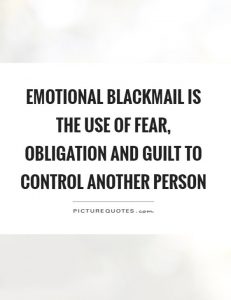《自律養生實踐家之旅348》 情勒的隱形囚籠

當一個路人問你路時,你不會只指個方向就說:「往那邊走,你自然會找到想去的地方。」通常你會詳細說明:經過幾個路口、在哪棟建築物左轉、在哪家店鋪右轉。
因為問路的人可能來自外地,可能正趕時間,他需要具體的協助。解釋得越清楚,他就越能順利抵達目的地。
人生中,我們偶爾也需要請人指引方向,但一個人不可能一輩子都在問路。當你打算住在一座陌生城市,總得自己走出去,熟悉那裡的街道與生活。
想像另一個場景:你在路邊遇到一位乞討的老人,第一天你從錢包裡拿出一張紙鈔,隔天改成只給銅板。他會立刻察覺到「今天少了」。若你總是慷慨回應,久而久之,他就會熟悉你的作息,天天等候在同一個位置。
自從「情緒勒索」這個名詞出現後,我開始對照自己的人際互動,想起母親與我之間的關係,也想起我和兩個兒子之間的互動。
情緒,很少是單方面的勒索。長輩常以「為你好」為名對晚輩施壓,而晚輩同樣會仗著長輩的愛,無限索求。表面上是「關心」與「需要幫忙」,實則背後的真相,往往是情緒勒索。
在學生時期,我很少主動向老師提問,習慣自己找資料。坦白說,我並不欣賞那時的自己:既不積極,也沒效率。
直到醫學院,與幾位成績不錯的同學共同研讀時,我才逐漸體會到「成長」的氛圍。然而,當時的我仍好面子,很少願意坦承疑惑。
真正的領悟,是在我和學員私下談「身體之道」的時候。對方是否願意轉換視角,我一眼便能看出。
我發現,在腦袋與思考之間,有一條看不見的線,牢牢綑綁著人。這條線就是一種情勒,它不只是一種思想的僵化,更是一種情緒上的糾纏,讓人陷在無法掙脫的迴圈裡。
於是形成了另一種「問路模式」:有問必答、有求必應。結果是,當事人永遠停在原地,因為只要提出疑惑,就有人替他解答;只要遇到困難,就有人伸手相助。於是,他失去了自主跨越的可能。
「要刮別人的鬍子之前,先把自己的鬍子刮乾淨。」這句廣告詞至今仍記憶猶新。
我們往往忽略了一個隱藏面向:真正讓我們難受的「情勒對象」,其實不是別人,而是自己。
在說「別人情緒勒索我」之前,應先反問:「我是不是早已習慣自我情勒?」
這其實是「解決問題」與「提升自己」的取捨,有些問題存在,只是因為我們用同一種視角反覆檢視。當我們拉高視野,問題往往就不再是問題。
但人很少願意承認「問題出在自己」,總是先把責任指向他人。唯有提升眼界,才能真正看清問題的源頭。若源頭在於自己不夠精進,那就該努力提升,而不是無止境的索取答案。
以「膽囊功能」為例,醫學院教科書和網路資訊幾乎都給出同樣的答案:「膽囊負責儲存膽汁。」多年來,幾乎沒人質疑過這個標準說法。
然而,若你真正理解膽汁的流向,就會發現:膽囊的關鍵角色並非倉庫,而是「回收膽汁」的中樞,這是一種超越死板答案的思維升級。
今天醫學最大的問題,在於一味追逐科技進步,卻忽略了哲思與人性的省察。很難認錯是一個層面,而傲慢才是最大的問題。
一旦我們因傲慢而停滯、不再進步,那正是對自己最深的情勒。
人類具備不可思議的免疫力,也具備不可限量的思考力。若任由天賦荒廢,最終要面對的,都是自我情勒的後果。
那些可以避免的爭執、毫無意義的冷戰、反覆糾結的情緒,其實都是自己困住了自己。當旁人勸你「放過自己吧!」,多數人根本聽不懂。
所以,當你聽到有人說:「你的問題不是問題。」若這句話出自比你有經驗的人,就應該自問:「真正的問題,會不會其實是我這個提出問題的人?」
提升,學會放過自己;超越,不再受限於自己;翱翔,終於看見生命的全貌。
(情緒勒索是利用恐懼、義務與罪惡感來控制另外一個人)
The Invisible Cage of Emotional Blackmail
When a passerby asks you for directions, you wouldn’t just point vaguely and say, “Go that way, and you’ll eventually find your destination.” Instead, you’d explain in detail: how many intersections to cross, where to turn left at a certain building, or where to turn right near a specific store.
The reason is simple: the person asking might be from out of town, or perhaps in a hurry—they need concrete guidance. The clearer the explanation, the more likely they are to reach their destination smoothly.
In life, we too occasionally need to ask for directions. But no one can spend their whole life asking others the way. Once you decide to live in an unfamiliar city, you must eventually venture out, walk its streets, and become familiar with its rhythm of life.
Now, imagine another scenario: you meet an old beggar by the roadside. On the first day, you hand him a bill. The next day, you give him only coins. He immediately notices—“less today.” If you continue to give generously, he will, over time, learn your habits and wait for you daily in the same spot.
Since the phrase “emotional blackmail” emerged, I began reflecting on my own relationships—thinking of my mother and me, and of my interactions with my two sons.
Emotions are rarely one-sided in blackmail. Elders often pressure the young “for their own good,” while the younger generation just as often exploits the love of their elders to demand without limit. What appears on the surface as “care” or “help” often hides the truth: emotional blackmail.
—
During my student years, I seldom asked teachers questions, preferring to look things up myself. To be honest, I don’t admire that version of myself: neither proactive nor efficient.
It wasn’t until medical school, studying with a few strong classmates, that I began to sense the atmosphere of true “growth.” Still, pride kept me from admitting my doubts.
The real awakening came much later, in private conversations with my students about the “Way of the Body.” I could instantly see whether someone was willing to shift their perspective.
I realized that between the mind and thought lies an invisible line—a binding cord. This line is itself a form of emotional blackmail: not just intellectual rigidity but an entanglement of emotion, trapping people in cycles they cannot escape.
And so, another “asking-for-directions pattern” forms: every question gets an answer, every request a response. The result? The person never moves forward. As long as they voice confusion, someone answers; as long as they encounter difficulty, someone steps in. Gradually, they lose the ability to cross thresholds on their own.
—
“Before you shave someone else’s beard, shave your own clean first.” This old commercial slogan still lingers in my mind.
What we often overlook is this: the true source of emotional blackmail that makes us suffer is not others—it is ourselves.
Before saying, “Others emotionally blackmail me,” we should first ask: “Am I already in the habit of blackmailing myself?”
This is really a matter of solving problems versus improving oneself. Some problems persist only because we keep examining them from the same perspective. Once we elevate our vision, the so-called “problem” often dissolves.
Yet people rarely admit “the problem lies within me.” They prefer to assign blame outward. Only by expanding our vision can we see the true source. If the source is our own lack of growth, then we should strive to improve, not endlessly demand answers from others.
—
Take the gallbladder, for instance. Medical textbooks and online resources nearly all state the same thing: “The gallbladder stores bile.” For years, almost no one questioned this standard explanation.
But if you truly study the flow of bile, you’ll find the gallbladder’s key role is not as a warehouse but as the central hub for recycling bile. This represents a shift beyond rigid answers—a step toward upgraded thinking.
Modern medicine’s greatest flaw is its blind pursuit of technological progress, while neglecting philosophy and self-examination. Difficulty in admitting mistakes is one thing, but arrogance is the deeper problem.
Once arrogance causes us to stagnate, ceasing to grow, that becomes the most profound form of emotional blackmail against ourselves.
—
Humans possess astonishing immunity and boundless capacity for thought. But if we let these gifts waste away, the inevitable outcome is self-imposed blackmail.
The arguments that could have been avoided, the pointless silent treatments, the recurring emotional entanglements—all are forms of the self trapping the self. When others advise, “Let yourself off the hook,” most people cannot grasp the meaning.
So, when you hear someone say, “Your problem is not really a problem,”—if that person is more experienced than you—then you must ask: “Is the real problem actually me, the one raising the question?”
Growth means learning to release yourself.
Transcendence means no longer being confined by yourself.
And to soar is finally to see life in its entirety.


